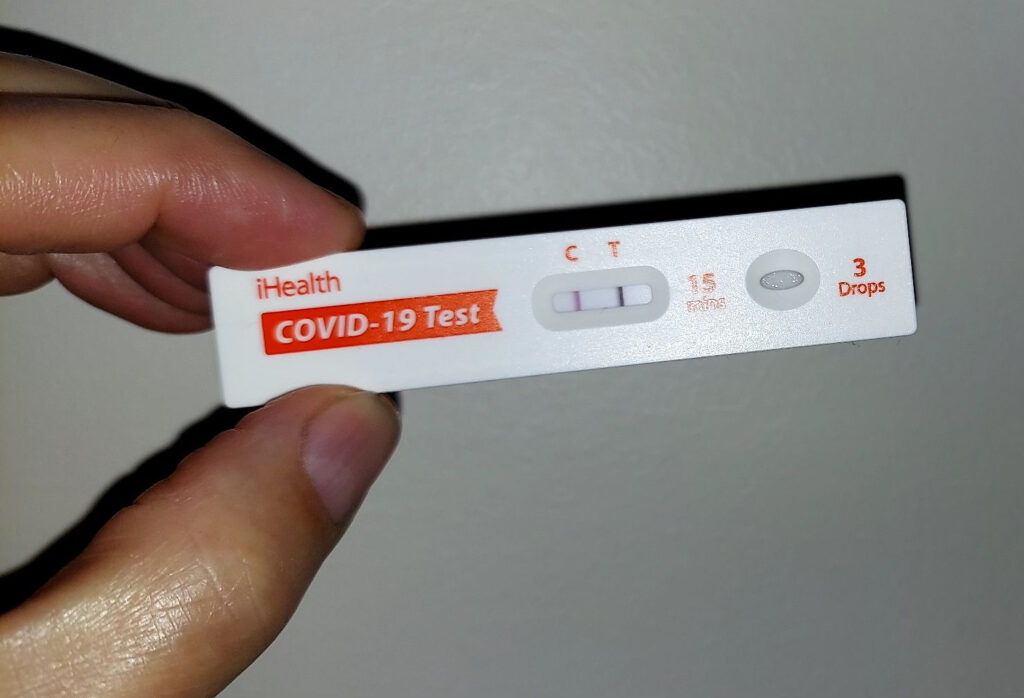I’d managed to avoid it for well over two years, but I finally got COVID-19. Thankfully, I’m fully vaccinated and double boosted. My symptoms are really mild and it’s been treated with a phone consultation and a prescription.
It was weird. On Tuesday, July 19, I was doing great. I ran 5 km on the treadmill in increments of 8 minutes of running, 1 minute of walking, 8 minutes of running, repeated until I’d completed 5 km in about 37 minutes. I showered, walked home from the gym, made dinner and so on.
The next day, I wasn’t feeling so good. My nose was running and I was sneezing. I looked in my medicine cabinet for something to relieve those symptoms, didn’t find anything that fit, and figured I’d buy something after work. I drove to my job at the Greene County Board of Elections. There were some jokes about how I surely had COVID-19 followed by my assurances that I had no reason to think that was the case – my sense of taste hadn’t changed and it was just sneezing and a runny nose. But at 2 p.m., co-workers seemed concerned about me and assured me that they could get by without me. So I left early, went to a supermarket, bought antihistamines to deal with the symptoms along with a few other things, and drove home. I figured I’d return to work on Friday with no trouble.
On Thursday, July 21, I took a COVID-19 test out of an abundance of caution. It was positive.

I phoned work to let them know I wouldn’t be in the next day and to ask that the people who’d been exposed to me be informed of my test result. I phoned my doctor’s office to see what to do. It’s five days of isolation followed by five days of masking and no out-of-town travel. Later, I sent an online message to ask if I should take antiviral drugs; this resulted in a prescription for Paxlovid, the same treatment that President Joe Biden is getting.
I also sent a message to the Peace Corps Office of Medical Services, since I’m still in the process of completing medical clearance for my service in North Macedonia that’s scheduled to begin in late September. They thanked me for informing them and added new tasks for me to complete to finish medical clearance.
I’m told that it’s gotten a lot harder to pass medical clearance since the COVID-19 shutdown. Some of it is things that are specific to COVID-19, including the requirement that I give them details of my diagnosis and treatment for this. Others seem to be completely unrelated, such as the requirement that invitees between the ages of 45 and 75 get screenings for colon cancer. I suspect that the colon cancer screening is something they were likely to have added anyway, but the long period of not processing new people into the system provided a convenient time to add new requirements. And frankly, it makes a lot of sense to require a colon cancer screening.
It was fairly easy to complete this screening; it involved analysis of a stool sample that I could collect at home and send to a lab via UPS. As it turns out, the lab is in Madison, Wisconsin. Since I’m an alumnus of the University of Minnesota, I was delighted have an excuse to send my own feces to Madison.
But mostly, it’s just been a big nuisance to get this dealt with. Thankfully, I have good health insurance, but I didn’t have a regular relationship with a doctor, so I had to set that up. And it wasn’t easy to get the dental exam taken care of, but I did manage that eventually. The eyeglass replacement form was simplest since it didn’t involve insurance, but I needed to get a new eye exam since it had been more than two years since my last one. Got that done, so if my specs break while I’m serving, I’ll be able to get new ones.
I’m hoping for the best with this medical clearance. I don’t see any reason why I shouldn’t pass, but the number of people who are failing it does cause me some concern.